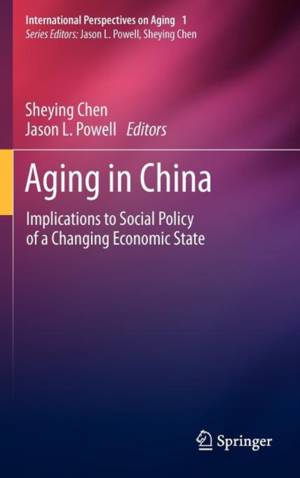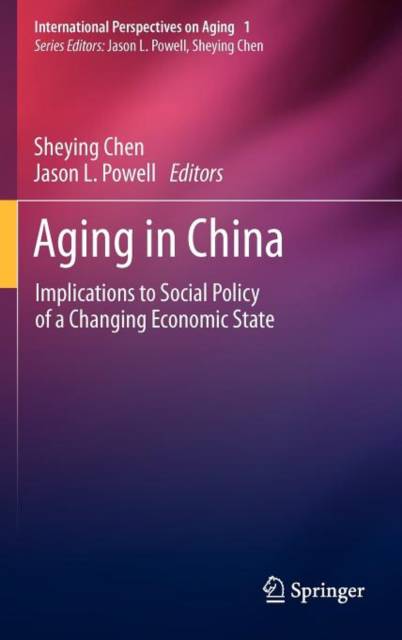
- Retrait gratuit dans votre magasin Club
- 7.000.000 titres dans notre catalogue
- Payer en toute sécurité
- Toujours un magasin près de chez vous
- Retrait gratuit dans votre magasin Club
- 7.000.0000 titres dans notre catalogue
- Payer en toute sécurité
- Toujours un magasin près de chez vous
Aging in China
Implications to Social Policy of a Changing Economic State
209,95 €
+ 419 points
Description
China, which is fast on its way to becoming the most powerful economic force in the world, has four unique characteristics that distinguish it from other countries in Asia: (1) The proportion of aging population is growing faster than that of Japan (the country previously recognized as having the fastest rate) and much faster than nations in western Europe. (2) An early arrival of an aging population before modernization has fully taken place, with social policy implications. It is certain that China will face a severely aged population before it has sufficient time and resources to establish an adequate social security and service system for older people. (3) There will be fluctuations in the total dependency ratio. The Chinese government estimates are that the country will reach a higher dependent burden earlier in the twenty-first century than was previously forecast. (4) The government's fertility policy (single child per family) and its implementation has a strong influence on the aging process. Fewer children are being born, but with more elderly people a conflict arises between the objectives to limit population increase and yet maintain a balanced age structure (Peng and Guo 2001). The intersection of these fourfold factors means that the increased aging population is giving rise to serious concerns among Chinese social policy makers. There is a chronic lack of good resource materials that attempt to make sense of social policy in its relationship to examining the problems and possibilities of human aging grounded in an analysis of economic of social policy in China and impact on rural and urban spaces. Such analysis of China will be covered by conceptual, theoretical, and empirical approaches. The book will also discuss substantive topics of housing, community care, family care, pensions, and mental health. The book brings together a truly world class array of researchers to provide discussions of critical implications of aging social policy and theeconomic impact in China.
Spécifications
Parties prenantes
- Editeur:
Contenu
- Nombre de pages :
- 284
- Langue:
- Anglais
- Collection :
- Tome:
- n° 2
Caractéristiques
- EAN:
- 9781441983503
- Date de parution :
- 30-11-11
- Format:
- Livre relié
- Format numérique:
- Genaaid
- Dimensions :
- 163 mm x 239 mm
- Poids :
- 566 g

Les avis
Nous publions uniquement les avis qui respectent les conditions requises. Consultez nos conditions pour les avis.





